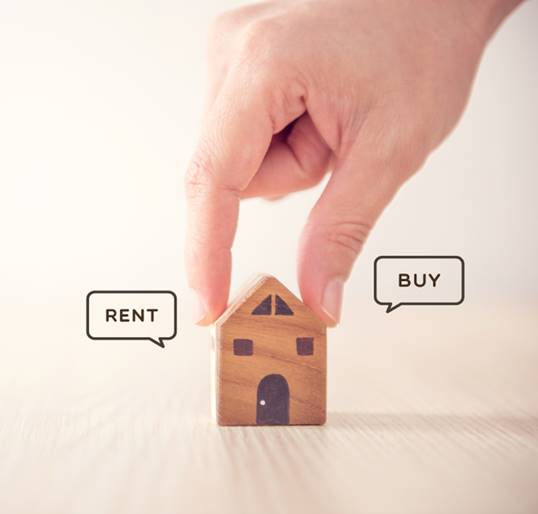20/12/2018
Rent to buy options may seem like an alternative path to home ownership, but they can be extremely risky propositions.
So risky, in fact, that it is illegal to rent to buy in the state of South Australia. The Consumer Action Law Centre also recommends that rent to buy schemes should be illegal across the country.
What makes these schemes so risky, and why do people continue to do them? First, let’s look at what it means to enter into a rent to buy contract.
 These types of contracts are also referred to as ‘lease to own’, ‘lease plus option’ and ‘wrapping’ schemes. They are popular with buyers who are unable to get financing for a home loan from lenders. Instead, the buyer finds a home that is being sold as a ‘rent to buy’.
These types of contracts are also referred to as ‘lease to own’, ‘lease plus option’ and ‘wrapping’ schemes. They are popular with buyers who are unable to get financing for a home loan from lenders. Instead, the buyer finds a home that is being sold as a ‘rent to buy’.
The buyer must make an application and pay an upfront payment before moving in. Buyers then move in and pay increased rent for a period of time—around five years—before building up enough equity to purchase the home outright.
For example, the weekly rental payments might be $600, with $400 going towards rent and $200 going towards the home equity. Once there is enough equity in the home, the buyer then applies for a home loan from a lender.
Advantages of Rent to Buy
Rent to buy contracts typically appeal to low income earners or people who struggle to get a loan from a traditional lender. On the surface, these contracts appear to be an opportunity to get your foot in the door of home ownership.
In fact, many people use the first home owners grant when entering into a rent to buy scheme. The purchase price is set in advance, so in theory you know how much you will need to borrow when you eventually apply for a loan.
While these factors may make rent to buy contracts sound like a reasonable option, there is a high element of risk if things do not go as planned.
Disadvantages of Rent to Buy
For starters, most sellers are not interested in rent to buy contracts; they’d rather sell the home outright. This means that the selection of rent to buy homes is much smaller than the standard market.
Rent to buy homes are typically new homes or homes in areas where property value is not growing in line with state or national averages. This furthers risk for buyers, as they could find themselves with a home that isn’t worth the eventual purchase price.
Rent to buy contracts are not regulated like standard home purchase contracts. Buyers are not protected by the National Credit Code and could lose the home in a number of ways.
When you rent to buy, you do not own the home during the rental phase. If you make a late payment, you could invalidate the contract, losing any money you’ve already paid. What’s more, if the seller defaults on their mortgage, the lender could repossess the home and you would forfeit any payments.
If you rent to buy because you’ve had trouble securing a home loan, you’re not off the hook. After the initial rental period, you will usually still have to get a home loan to purchase the remainder of the property. If your situation hasn’t changed, you could be denied for a loan, which means—you guessed it—you lose the property.
If this all sounds risky to you, that’s for good reason: the Consumer Action Law Centre reported in October 2016 that it had ‘seen no examples of successful rent to buy deals’.
Questions to ask when considering a rent to buy contract
Still thinking about a rent to buy contract? Here are some questions to ask.
- How much of the rent goes towards building equity and how much is just rent?
- Am I responsible for paying for home maintenance and council rates?
- What happens if I make a late payment?
- Are there any fees associated with the contract?
Read the terms and conditions of the contract carefully, so you understand what’s at stake. It’s also wise to get legal advice before entering into a rent to buy contract.
Alternatives to rent to buy contracts
People usually rent to buy because they can’t get approved for a home loan. This could be due to insufficient income, inability to provide a substantial deposit, or a lack of documentation; for example, if you are self-employed.
Though it is difficult to get a home loan in these situations, some lenders do offer non-traditional home loans. These include low documentation home loans, low deposit home loans, and even low income home loans.
Prospective borrowers who can’t get a loan because of a poor credit history may be better off focusing on building their credit. Once they raise their credit score, they can revisit the possibility of purchasing a home.
If you’re unable to afford the cost of mortgage payments but have a deposit, you could even consider purchasing an investment property and renting it out. This is an option for people who want to get into the property market but can’t afford to live in the property.
Before making any risky decisions, compare home loans to find one that meets your needs and gives you the consumer protection that can put your mind at ease.
Disclaimer: while due care is taken, the viewpoints expressed by contributors do not necessarily reflect the opinions of Your Investment Property.

